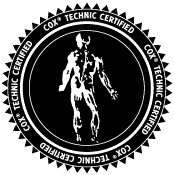Nutritional Approaches to Managing Murfreesboro Disc Degeneration
The role nutrition plays in lumbar spinal disc degeneration has been a key focus lately. Research highlights several strategies to address this condition. At Most Chiropractic Clinic, we recommend a comprehensive approach: alleviating pain through Cox® spinal manipulation and supporting disc health with improved diet and nutrition.
DISC DEGENERATION INFLUENCES: Metabolic and Cellular Processes
Recent research has been revealing fascinating connections between our metabolic and cellular processes and their role in spinal degeneration. For instance, Guo et al. (1) wrote about how metabolic syndrome can exacerbate spinal degeneration in patients with lumbar disc herniation, demonstrating just how much systemic factors like general health can impact spinal health. On the other hand, Feng et al. (2) explored mitophagy—the process of clearing out damaged mitochondria—within critical components of intervertebral discs, including the nucleus pulposus, annulus fibrosus, and cartilage endplate. Their work offers exciting insights into possible therapies for decelerating or even reversing disc degeneration. What does this mean for us? It’s clear that spinal degeneration isn’t caused by just one thing—it’s a complex process swayed by both systemic issues, like metabolic health, and cellular mechanisms, like mitophagy. This indicates the need for a well-rounded approach to spinal care, one that is more than just managing symptoms to address the underlying causes. Certainly, a deeper understanding of the elaborate cellular processes that drive degeneration is helpful, but lifestyle factors like diet, exercise, stress management, and nutrition are sensible.
Murfreesboro CHIROPRACTIC NUTRITION TIP: Enhance Quercitrin and Vitamin D Levels
Recent research reports also featured a few tips that can help contain disc degeneration. Wu et al (3) investigated how the compound quercitrin could help treat spinal disc degeneration by reducing inflammation and preventing cell damage. Incorporating quercitrin into future therapies may offer a promising solution for handling disc degeneration. Li et al (4) detailed how a lack of Vitamin D can worsen spinal disc degeneration by stimulating processes that break down the supportive tissue in the discs. Let’s maybe look at adding quercitrin and Vitamin D to your daily nutrition program? We’ll chat at your next Murfreesboro chiropractic appointment.
WHAT TO DO?
Don’t let disc degeneration bother you. The reality is that spinal degeneration comes with aging, but taking charge of your spinal health sooner than later can make a huge difference. By understanding the factors involved and adopting preventative measures, we can delay or even minimize the impact of spinal degeneration, keeping our spines stronger and healthier for longer. It is never too early—or too late—to begin taking care of your spine!
Listen to this PODCAST with Dr. James Cox on The Back Doctors Podcast with Dr. Michael Johnson as he describes the importance of spinal nutrition in The Cox® Technic System of Spinal Pain Management to enhance clinical outcomes.
CONTACT Most Chiropractic Clinic
Schedule your Murfreesboro chiropractic appointment with Most Chiropractic Clinic soon.


